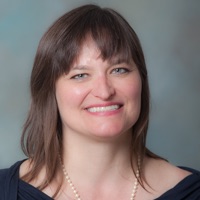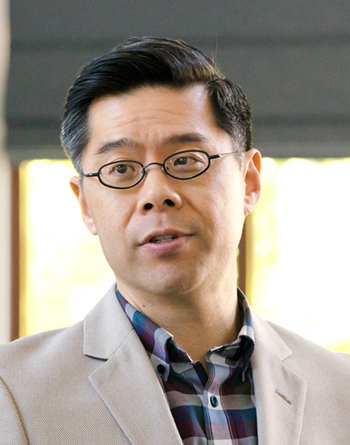In case of an educational emergency, look for faculty to hold out a life preserver.
Even before the novel coronavirus shut down in-person classes at UC Davis this spring, faculty in various disciplines were putting their heads together to figure out how the new normal in remote teaching would work.
RELATED CONTENT
Two psychology faculty were stepping up to help colleagues, teaching assistants and students to make the smoothest-possible jump to remote instruction. And faculty in the School of Education developed another form of help — a “buddy system” of thought partners — fellow faculty who could step in to teach for each other in case of a family illness or other emergency. This was especially critical, said Kevin Gee, associate professor of education, because they had some new faculty in the program.
Gee co-directs a doctoral program in education leadership, which he said already has a small and close-knit instructional team.
“Teaching is typically an isolating experience, but in this new normal, we have to rely more on each other.” — Kevin Gee, School of Education
In psychology, Victoria Cross, associate professor, reached out to Distinguished Professor Steve Luck after campus leaders announced in the last weeks of winter quarter that instructors must offer alternatives to in-classroom final exams. Cross’ research focuses on using communication technologies to improve undergraduate education. Luck is a leader in hybrid instruction that combines online lectures with live small-group discussion. They collaborated quickly. Psychology is the most popular major, with about 5,000 students enrolled in more than 40 courses offered in a given quarter.

Step by step
Cross and Luck took the following steps::
- Consulted psychology department leaders
- Gathered how-tos and lessons learned at other universities
- Created an online discussion group
- Launched a website
- Trained faculty and teaching assistants on teaching via Zoom web conferencing, Canvas tools and other remote methods

Complementing the campus Keep Teaching site, the specially developed psychology website offers faculty-to-faculty tips and moral support. An introduction to the site stresses that remote instruction is a temporary situation:
“We support you in ‘rapid prototyping’ (aka flying by the seat of your pants and making changes if things don’t work out) and in erring on the side of compassion.”
Luck said their aim was to help faculty and TAs share with each other what works and doesn’t — and to be as organized and efficient as possible.
In a feature by Sacramento ABC affiliate KXTV, Steve Luck talks about the transition to remote instruction and challenges in conducting exams.
“It was something that I thought would really have a positive impact in making the educational experience better for thousands and thousands of students who take classes in psychology,” Luck said. “I want students to do the best as possible under these extreme circumstances.”
Read more about the psychology department project.
Not just for remote education
In the School of Education, Gee said he hopes they continue their back-up system long after remote education is necessary on a day-to-day basis. “In my eight years in my school, we’ve never had a formalized backup or support system for teaching or an explicit support system for our more junior colleagues with their teaching,” he said. “I’m hoping that we could institutionalize this down the road.

“We do have the privilege of being in a large enough school or program that we have faculty who (1) are able and willing to step up; and (2) have complementary expertise.”
In the School of Education, instructors set up a Google spreadsheet with the classes, and then had faculty sign up who could be the first backup and then the second backup. The backup professor would be available to either teach temporarily or, for the long run, for health or family reasons, Gee said.
“That way, if I'm teaching and something happens, I can reach out to the first one on the list for help. Fortunately, we haven’t had to activate the system yet.”
From The Chronicle of Higher Education: Gee talks about the School of Education’s program.
About the authors
Kathleen Holder is a content strategist and writer in the College of Letters and Science.
Karen Nikos-Rose is a senior public information representative in News and Media Relations, Office of Strategic Communications.
Media Resources
Karen Nikos-Rose, News and Media Relations, 530-219-5472, kmnikos@ucdavis.edu
Kathleen Holder, College of Letters and Science, 530-752-8585, kmholder@ucdavis.edu
